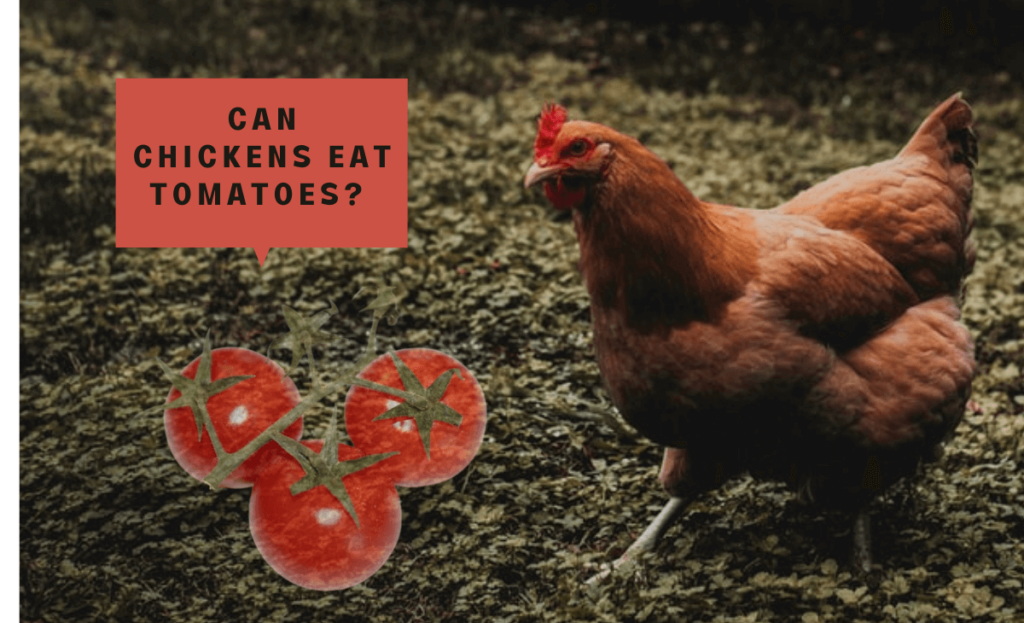Can chickens eat tomatoes? You may ponder this question as you hear others feeding tomatoes to their flock. Or, perhaps you happen to see a tomato in your kitchen and wonder if your chickens can have it.
The question of whether poultry can have tomatoes is a valid one. It is a subject of controversy among chicken enthusiasts. They say they are natural foods for poultry and provide many nutritional benefits, while others say they contain toxic substances and are not the right feed.
So, what is the truth? Can chickens eat tomatoes? Does it have nutritional benefits or vitamins for your flock? What are the potential risks of feeding this fruit to your poultry?
The quick answer is chickens can eat tomatoes. Continue reading to discover how to feed them and what parts of the tomato can be given.
All About Tomatoes
What is a Tomato?
A tomato is a fruit that originated in the Americas and is now grown worldwide. Its typical color is red, though it can also appear yellow, orange, or green. Its scientific name is Solanum Lycopersicum.
They have an acidic taste and are a common ingredient in many dishes. They are a popular food choice for humans and are often eaten as a snack or in a salad. You can find them in food like ketchup, pizza sauce, and salsa. You can also make tomato sauce, juice, and soup. With its versatility in the human diet, there is no doubt why many also believe they contain various nutrients for the chicken. Still, can you feed tomatoes to your chickens?
Nutrition Facts
Nutritional Contents:
- B vitamins, including thiamin, riboflavin, niacin, and vitamin B6
- Manganese
- Potassium
- Magnesium
- Fiber
- Calories: 17
- Carbohydrates: 3.9 g
- Sugar: 2.9 g
- Dietary Fiber: 1.2 g
- Protein: 1.2 g
- Fat: 0.2 g
- Vitamin A: 6% of the RDI
- Vitamin C: 94%
Varieties
Tomatoes have many varieties, and the nutritional value of each will vary. The following combinations are some of the most common types of tomatoes:
- Roma: These fruits are typically used for sauces and are low in sugar.
- Cherry: These are small, very sweet, and often eaten as a snack.
- Beefsteak: These large, red tomatoes go well in salads.
- Green: These are unripe and can be used in dishes like fried green tomatoes.
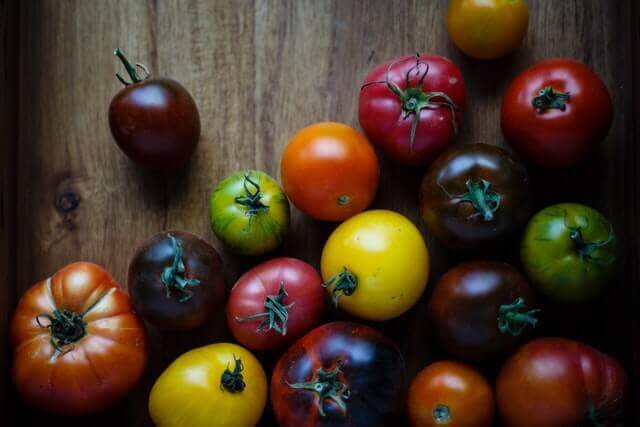
Are tomatoes a healthy food source for chickens?
Tomatoes contain essential nutrients and are a rich source of Vitamins A and C. It contains other minerals like potassium and manganese, carbohydrates, and protein. It also has a high amount of antioxidants and lycopene, which is beneficial for heart health.
If you plan on raising chickens, tomatoes can be one of the most nutritious foods to feed your flock and can provide many health benefits, such as:
• Boosting the immune system
• Promoting digestive health
• Helping to maintain healthy skin and feathers
• Providing energy
However, just like any other chicken feed or human food, it’s important not to give your flock too many tomatoes in their chicken feeder. Too much of anything is harmful, and the same holds for tomatoes.
Unripe vs. Ripe Tomatoes
The nutritional value of tomatoes will also depend on their ripeness. The fully grown tomatoes are firm with slightly glossy skin, while the unripe ones are green and can be sour.
The ripe tomatoes have more vitamin A, ascorbic acid, carbohydrates, protein, and glucose content. It is also relatively low in fat. On the other hand, the unripe tomatoes contain toxic compounds called tomatine, which can be harmful to your flock in large amounts. Both unripe and ripe ones contain the same amount of fiber.
So, what do these findings mean? In general, ripe tomatoes are more nutritious than tomatoes in an unripe state. Hence, feeding your chickens unripe tomatoes may not be the most suitable option.
However, the nutritional value will still depend on the specific type of tomato. For example, a Roma variety will be lower in sugar than a cherry variety.
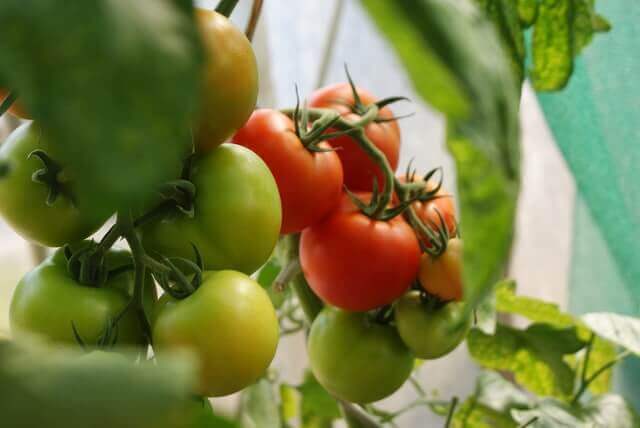
Cooked vs. Uncooked Tomatoes
Cooked tomatoes are also more nutritious than uncooked tomatoes. It has more vitamin A, carbohydrates, protein, and less fat than the uncooked ones. The cooking process allows some of the plant’s cell walls to break down, making nutrients more readily available to the body.
Moreso, there is no difference in cooked and uncooked tomatoes’ ascorbic acid, glucose, and dietary fiber content.
Do Chickens Like Tomatoes: Versatility of Tomato Plants
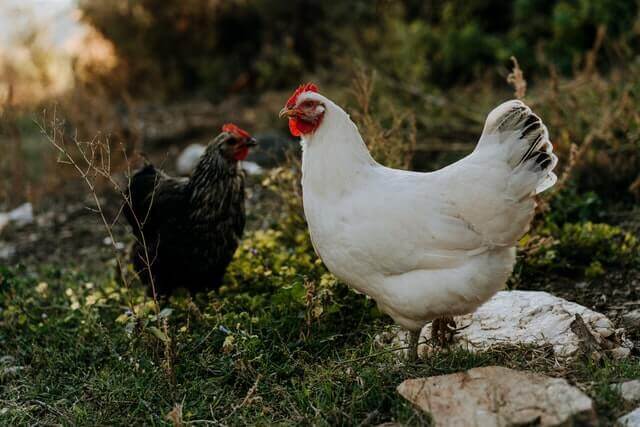
Tomatoes are known for their versatility, and you can give them to chickens in various ways. They can consume the flesh, seeds, and skin of the fruit. You can also give them stewed or boiled tomatoes. However, you should avoid giving them raw tomatoes as they can be difficult for the poultry to digest.
Can Chickens eat Tomato Leaves?
Some people believe that your flock can consume the leaves, but this is not true. They should not consume the leaves as they may contain harmful toxins or any poisonous substance that make them sick. It is a common belief among chicken enthusiasts that the leaves of this plant can be poisonous to poultry.
Can Chickens have Tomato Seeds?
The seeds can also be harmful to the flock, as they contain solanine. Solanine can cause digestive problems in poultry and be toxic if eaten in large amounts. It’s best not to feed your chickens with it.
Can Chickens have Tomato Flowers?
The flowers can also be harmful to poultry, as they contain a toxin called glycoalkaloid. In scientific terms, glycoalkaloids are “secondary metabolites.” These compounds are not essential for the plant’s survival but can be harmful to animals that eat them. Glycoalkaloids can cause problems in their digestive system.
Can Chicks have Tomatoes?
The chick’s stomach cannot digest the tomato skin, so it is advisable to remove it before feeding. You can feed them the flesh and seeds.
Keep an Eye Out for these Symptoms
If your chickens consume too many tomatoes, it can lead to:
– Diarrhea
– Vomiting
– Bloody droppings
– Damage to the lining of the stomach and intestines
If you notice any of the following symptoms, contact your veterinarian right away.
Effects of Feeding Chickens Tomatoes on Eggs and Meat
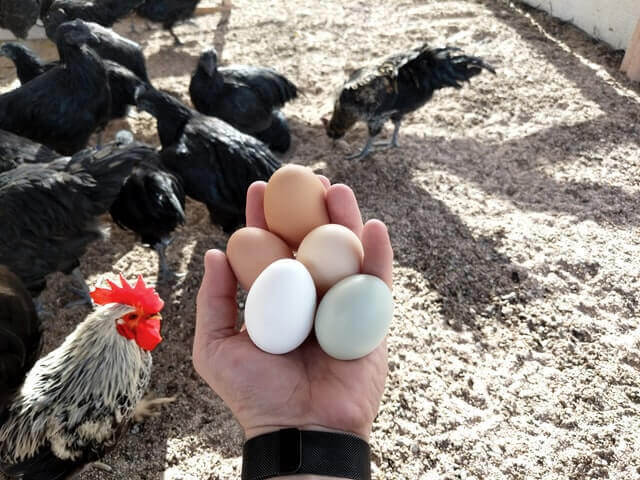
One of the concerns about giving tomatoes to poultry animals or human food is that they can transfer toxins to the egg or meat. We don’t know if it will affect the egg or meat. Let’s see.
Egg quality
There is no evidence that feeding hens with tomatoes can affect the quality of the egg. Research has found that hens that consume tomatoes can produce eggs richer in antioxidants than those laid by hens that do not eat tomatoes.
In addition, hens that eat tomatoes produce eggs with less cholesterol than those from hens that don’t. Yet, some also say that tomatoes can cause eggs to have a weaker shell and make the yolk less orange in color.
Meat quality
Feeding tomatoes to chickens do not affect the quality of their meat.
Instead, it increases the nutritional value of their meat. When a chicken eats tomatoes, it produces meat that is higher in antioxidants and lower in cholesterol than a chicken that does not eat tomatoes.
It is also interesting to note that the flesh of the chicken can also acquire a pinkish hue when these vegetables are consumed. This natural pigment gives tomatoes their red color.
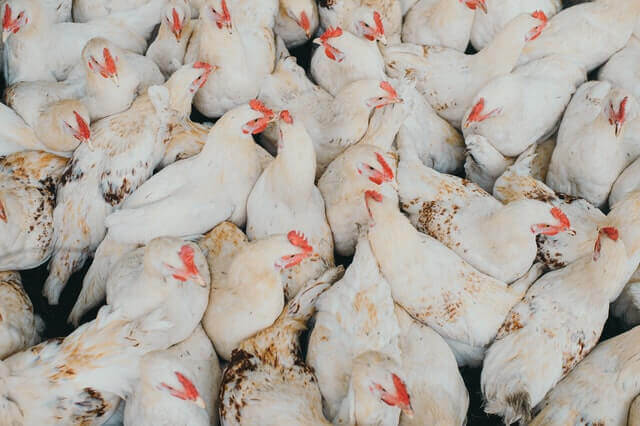
Reminders on Feeding Tomatoes to Your Chickens
You can feed tomatoes to chickens as a regular part of their diet. It is most effective to feed them only a small number at a time. We may not know how many tomatoes can be harmful to their health. Start by giving your chickens a small piece and observing how they digest it.
They should not eat more than one or two pieces each day. If they seem to tolerate tomatoes well, you can give them a little more next time. If possible, your chickens should only eat ripe tomatoes.
Do not forget to wash all tomatoes thoroughly before feeding them to your chickens to remove any dirt or pesticides on the surface.
You can also mix other types of tomatoes with other lower-acid foods to reduce the risk of issues and provide a variety of nutrients to chickens.
To control cholesterol levels, give your chickens a can of tomatoes daily. Research has found that the lycopene found in tomatoes helps reduce oxidized cholesterol and protect the heart.
Avoid feeding moldy tomatoes to your chicken
A mold is one type of fungi that grows on food. It produces a dangerous metabolite called aflatoxin, which chickens can ingest. It can cause respiratory and digestive issues and neurological problems in chickens, especially when consumed in large amounts.
Hence, it is wise to avoid feeding moldy tomatoes to chickens. If you see mold on your tomatoes, throw them right away and wash your hands thoroughly after handling them.
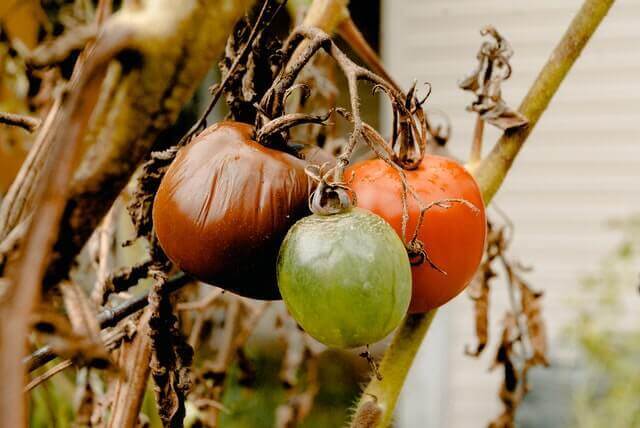
Related Questions
Can chickens eat green tomatoes?
Yes, chickens can consume green-colored tomatoes. However, these are not as ripe as red cherry tomatoes and contain more acid. It is best to feed your chickens only a tiny number of that kind.
Can chickens eat tomato paste and sauce?
Tomato paste and sauce are high in glucose. Therefore, chickens should not eat them.
Can chickens eat canned tomatoes?
Yes, chickens can eat canned tomatoes. However, it is crucial to ensure that they are not packed in syrup. This is because the syrup will be high in glucose and may have an adverse effect on your chicken’s health. The tomatoes should also not have added salt since too much salt can harm chickens.
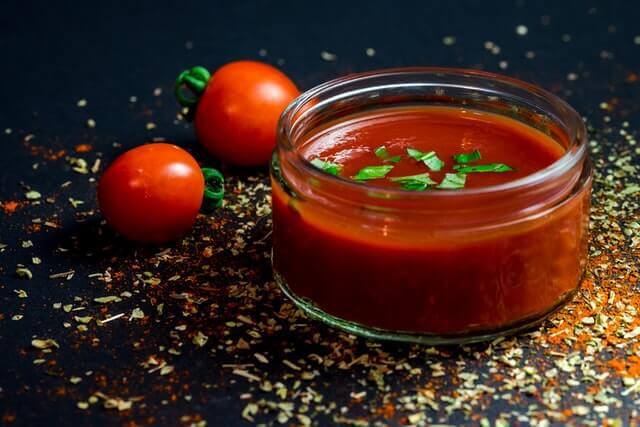
Final Thoughts
With a better understanding of tomatoes, whether chickens can eat this fruit or not becomes clearer. First, chickens can consume tomatoes, but not all varieties are safe. Specifically, they should avoid eating green tomatoes as it contains more acid and toxins.
Second, while tomatoes are not poisonous to most chickens and are safe to eat, too many of them may not be healthy. So, if you plan on adding this recipe to your chicken’s regular diet, it is best to feed them a moderate amount. Finally, watch for any signs of gastrointestinal discomfort and call a professional when something terrible happens.

